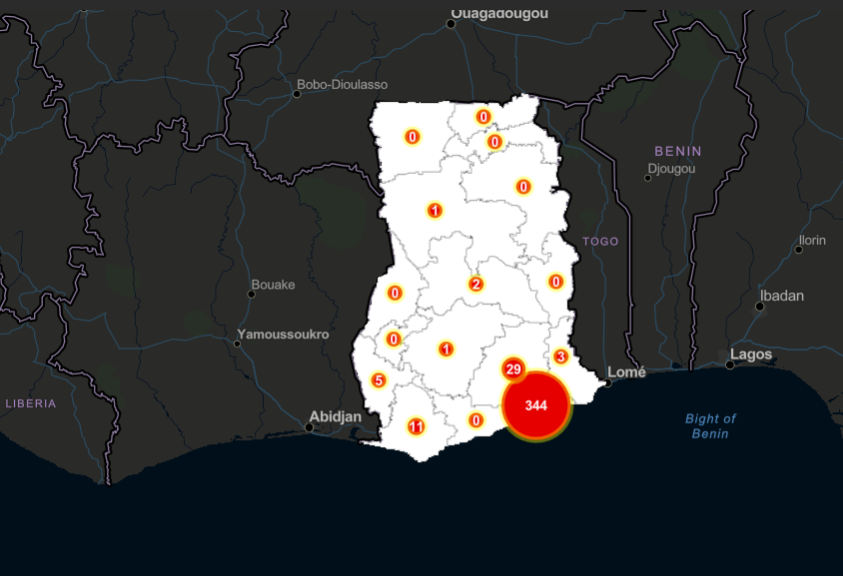
COVID-19: Ghana's active case count surges by over 800% in 3 weeks
Ghana's COVID-19 active case count has risen to 396 from 47 three weeks ago, with eight regions now having active cases.
Regional breakdown
Per the figures on the Ghana Health Service COVID-19 portal as of June 3, 2022, eight out of the 16 regions have active cases. Greater Accra has 344 cases, Volta region has three cases, the Eastern region has 29 cases, the Western region has 11 cases, Western North has five cases, the Ashanti and the Savannah regions have one case each and the Bono East region has two cases.
However, no new deaths have been recorded within the period with the death toll at 1,445.
Reasons
The Presidential Advisor on Health, Dr Anthony Nsiah Asare has attributed the recent surge to the onset of the rainy season.
“For the past one month or so, there were no active cases in 15 of the 16 regions except Greater Accra Region, but as you are aware, what is happening now is that in every year around July, from now when the rain starts up to July, we have a flu-like respiratory tract infections,” Dr Asare said in an interview on Asaase Radio.
“We have a testing site, the site where we take samples from and Noguchi tests them… so we picked a few increase in influenza infections, and some of them, because influenza and COVID are family, we also tested them for COVID-19 and we had positive cases identified among these COVID-19 cases,” he said.
“But the most important thing is that most of them are mild to moderate cases which are being treated at home,” he said.
The easing of COVID-19 preventive measures including the wearing of facemasks in public places was announced on March 27, 2022, by President Akufo-Addo.
However, Dr Asare wants Ghanaians to make the personal choice to wear facemasks in enclosed, crowded places.
“We are also entreating people to reintroduce the use of nose masks within areas where there are a lot of people who are going to meet, especially in corporate organisations when they are having meetings in air-conditioned rooms which are enclosed.
“We entreat them to wear their masks and in schools because we are having flu-like illness. We also entreat the teachers to allow the children or to ask the children to wear nose masks while they are in class or on the school compound,” Dr Asare said.
